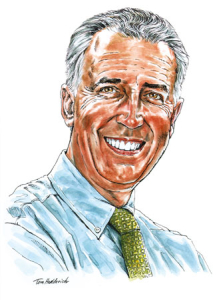Divisiveness and polarization have been around for centuries and they are the root causes of wars. Today, the Internet accelerates these, but traditional media is where all of the memes have originated

Why is America (along with many other nations) so divided and polarized? Aren’t the main issues the same? We are used to seeing the Middle East and Africa divided into many factions, but the problem exists also in the U.S., France, Italy, Venezuela, Colombia, the U.K. (with Brexit) and many other countries.
In those countries the laundry list of problems is clear and valid for the overwhelming majority of people: Jobs, schools, health care, mass transit and safety.
And yet, the same messages are somehow distorted during the carriage from the source to the citizens.
With the fall of Communism and the end of the divisive ideology between Communism and capitalism, the hope was that citizens the world over would focus on practical matters. Instead, people replaced economic ideologies with social and religious issues, sidetracking pragmatism.
Worst of all, practical matters got wrapped into social and religious issues (abortion rights, same-sex marriage), so that health care became a religious issue and safety became an immigration issue.
The rifts are also within various political parties. In the U.S., the Republicans are split into two or even three factions and the Democrats are divided into two camps.
The question now is: Why is the U.S. polarized at levels not seen possibly since the Civil War?
In my view, this neo-phenomenon has been initiated by the proliferation of TV and radio talk shows, in addition to an increasing number of news shows, and has been exacerbated by the widespread diffusion of Internet and social media.
When the number of TV channels was limited, information was more or less uniformly balanced toward the center. In those days, extremists had to join under-the-radar associations in order to hear and amplify the messages they wanted to hear.
When “cheap” talk TV became popular and widely emulated, TV stations needed new angles to be competitive and started seeking extreme topics and subjects. The language also changed, with curses sprinkling typical conversations and dialogues conducted by using vocabulary typical of a fifth grader.
Similarly, news TV channels had to differentiate themselves by serving niche audiences: FOX News for the right and MSNBC for the left.
These extreme news channels focused on the malfeasances of the opposite side and, at times, even embellished the reports with borderline fabrications. But they preached to the choir, which did not bother to listen to both sides. This, in my view, was the beginning of polarization, which led to divisiveness.
But, no matter how liberal or conservative TV channels are, they are “mainstream media” compared to the extremism of many Web outlets. Since these websites cost little to produce and do not require accountability, they can spring up daily, created by individuals who seek to be connected with those people that find traditional TV channels’ extremism too tame. These sites have become hotbeds for radical groups and are even used for recruiting terrorists, as the Daesh and white supremacists’ phenomena have demonstrated.
Not being accountable, these websites became popular also by actually fabricating false reports and amplifying untruths, mixing them all with some official statistics and cherry-picked news to have the semblance of validity.
Enter WikiLeaks, reportedly as an instrument of the Russian government to punish world politicians or to interfere with other nations’ elections. By making politicians’ malfeasances public, WikiLeaks also created distrust for the political establishment, rendering nations susceptible to populist propaganda and to an increased use of direct democracy. Referendums were originally the expression of citizens’ rebellion against a legislative system corrupted by corporate interests, but now the use of referendums is prone to manipulations, which create further divisiveness and problems.
by Dom Serafini
Audio Version (a DV Works service)

Leave A Comment